 When we help Metronomics/3HAG customers build their Swimlanes, we ask them to begin with the end in mind.
When we help Metronomics/3HAG customers build their Swimlanes, we ask them to begin with the end in mind.
Last week’s Tip Top Business Growth Summit 2023 ended on a high note from Alison Levine, team captain of the first American Women’s Everest Expedition, and author of On the Edge: Leadership Lessons from Mount Everest and Other Extreme Environments. She offered a leadership perspective on climbing, failure, and adversity.
Backing Up is Not the Same as Backing Down
The human body isn’t meant to operate at elevations over 20,000 feet. If I human were dropped from the sky onto the summit of Mt Everest, he/she would immediately die. They couldn’t survive at that altitude. This makes the climb up Everest not only physically demanding but psychologically frustrating.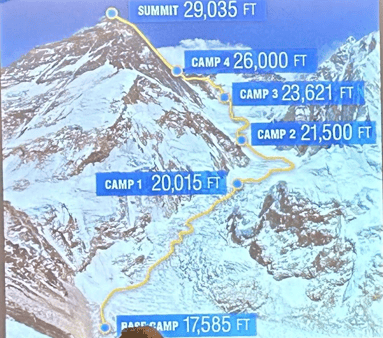
Alison shared this picture of the base camp, 4 subsequent interval camps, and the summit to climb Everest. Climbing Everest is not a simple base camp progression up through to the summit. Rather Alison explained it’s:
- Basecamp to Camp 1, back to base camp
- Basecamp to Camp 1, two, then back to base camp
- Basecamp to Camp 1, two, and three, then back to Basecamp.
- Basecamp to Camp 1, two, three, four, then back again to Basecamp.
- Finally, it’s basecamp to camps 1, two, three, four, and Summit.
This is acclimatization. (You might see a similarity to the process of onboarding a new team member?) This progression only occurs if the weather and other hazards don’t intervene. (I believe Alison said it was 6 trips before reaching the summit, so my notes may not be completely accurate.)
We believe progress only happens in one direction. The process helped her realize backing up is not backing down. It was a reminder to me, how in business we can lose sight of achieving our goals, by focusing on failure. This lesson I learned in What’s Your One Thing (3X). If it’s your One Thing, why should it matter if it requires 3 years to achieve it? It is still your One Thing. Alison’s example reminds us, it requires discipline and persistence to attain our objectives. Persist and you will succeed.
 Ice chunks shifting, open shafts, and weather are the frequent hazards on the climb. When you get above 26,000 feet it’s difficult to take one step. Each step requires 5-10 breaths before you can take another. In her team’s first attempt to reach the summit in 2002, they made it within 70 meters of the summit until weather prevented them from reaching the peak.
Ice chunks shifting, open shafts, and weather are the frequent hazards on the climb. When you get above 26,000 feet it’s difficult to take one step. Each step requires 5-10 breaths before you can take another. In her team’s first attempt to reach the summit in 2002, they made it within 70 meters of the summit until weather prevented them from reaching the peak.
“Fear is okay, complacency will kill you!” Alision’s admonishment is a great reminder to leaders.
Who to Recruit – Coach K’s advice.
In her first attempt to climb Everest Alison had to put together a team she confidently felt would work together to achieve a goal no other women had.
She spoke with Mike Krzyzewski, “Coach K” on how he assembled his teams, particularly the Olympic championship teams he coached. What did he look for? How did he recruit?
She was surprised Coach K told her to look for ego. Krzyzewski shared, “You want ego!” However, he offered two kinds of ego:
- Performance Ego
- Team Ego
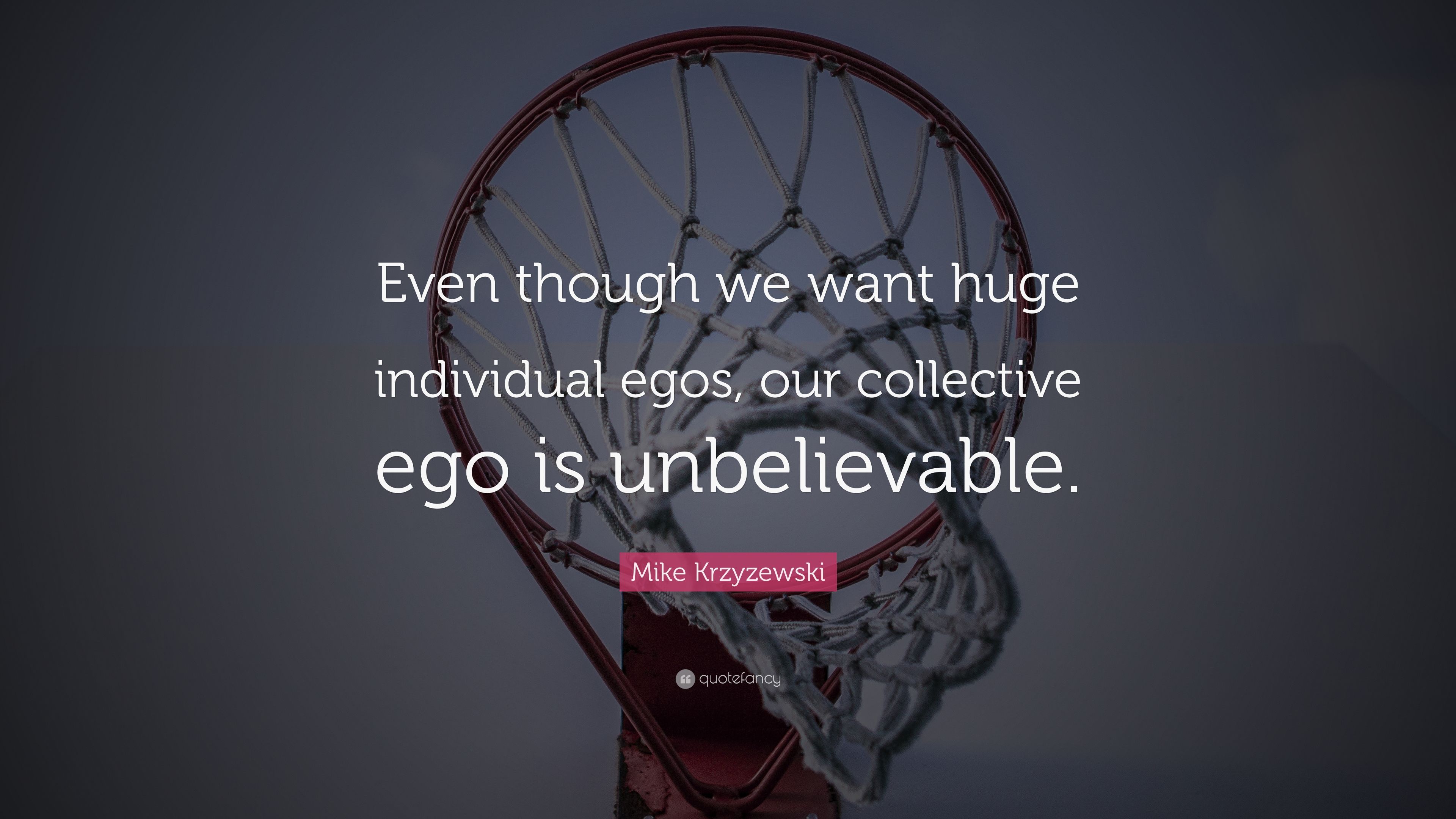 Performance Ego is self-explanatory. Team Ego, The Collective Ego, Coach K explained is more important. He shared what he told his Olympic athletes when he told them how he would make his selections, “The name on the front of the jersey (USA) is more important than the name on the back (theirs).”
Performance Ego is self-explanatory. Team Ego, The Collective Ego, Coach K explained is more important. He shared what he told his Olympic athletes when he told them how he would make his selections, “The name on the front of the jersey (USA) is more important than the name on the back (theirs).”
In an environment where one person’s bad decision can bring down the whole team, it’s critical to select team members who have a Team Ego.
Lessons
Alison shared that when someone tells you, “Don’t be scared” it tends to magnify your fear!
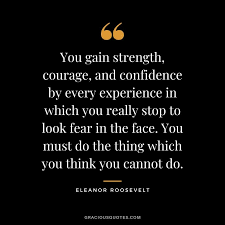 Fear is a normal human emotion. She learned to put a positive spin on fear. It keeps her aware and alert (similar to Productive Paranoia). She realized it is possible to be scared and courageous simultaneously.
Fear is a normal human emotion. She learned to put a positive spin on fear. It keeps her aware and alert (similar to Productive Paranoia). She realized it is possible to be scared and courageous simultaneously.
She learned the value of Team Ego; how important it is to find people who care about everyone reaching the goal rather than their individual performance.
She learned to treat failure differently and developed something she referred to as failure tolerance. Failure never defines you.
Finally, she changed her slogan. When she started these climbing adventures, her motto was “Go Big or Go Home!” After seeing so many of her friends not come home, she crafted a new one, “Go Big And Go Home!”
To create an environment where everyone is inspired to give their best, contact Positioning Systems today to schedule a free exploratory meeting.
Growth demands Strategic Discipline.
Next week I’ll continue to share insights and ideas for the speakers at Tip Top Business Growth Summit 2023. Dan Heath offered illuminating ideas from his book The Power Of Moments: Why Certain Experiences Have Extraordinary Impact. Our most memorable positive moments are dominated by four elements: elevation, insight, pride, and connection. How can we create these moments with our employees, customers, and loved ones to create richer experiences and loyalty?
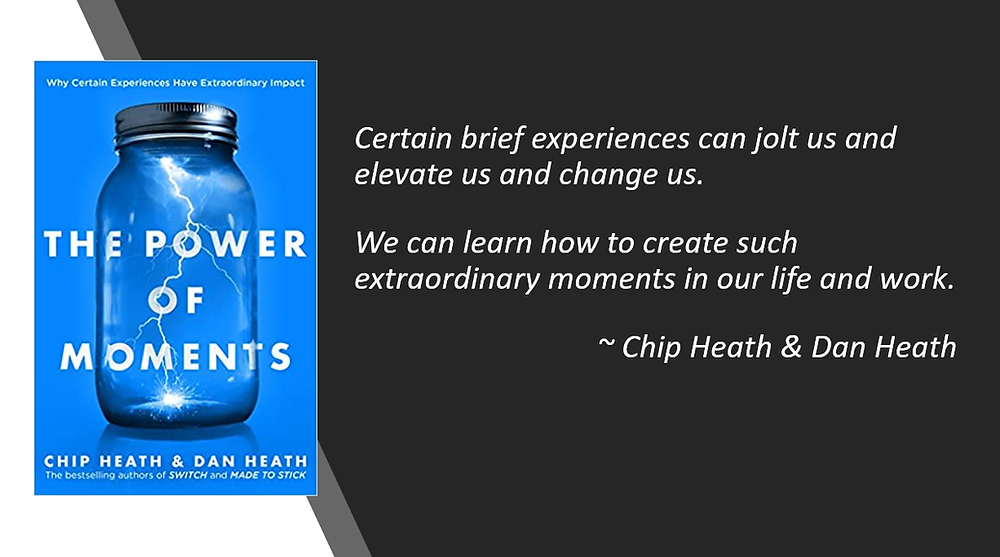 Building an enduring great organization requires disciplined people, disciplined thought, disciplined action, superior results, producing a distinctive impact on the world.
Building an enduring great organization requires disciplined people, disciplined thought, disciplined action, superior results, producing a distinctive impact on the world.
Discipline sustains momentum, over a long period of time, laying the foundations for lasting endurance.
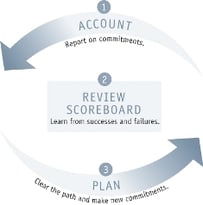 A winning habit starts with 3 Strategic Disciplines: Priority, Metrics, and Meeting Rhythms. Forecasting, accountability, individual, and team performance improve dramatically.
A winning habit starts with 3 Strategic Disciplines: Priority, Metrics, and Meeting Rhythms. Forecasting, accountability, individual, and team performance improve dramatically.
Meeting Rhythms achieve a disciplined focus on performance metrics to drive growth.
Let Positioning Systems help your business achieve these outcomes on the Four most Important Decisions your business faces:
|
DECISION |
RESULT/OUTCOME |
|
PEOPLE |
|
|
STRATEGY |
|
|
EXECUTION |
|
|
CASH |
|
Positioning Systems helps mid-sized ($5M - $500M+) businesses Scale-UP. We align your business to focus on Your One Thing! Contact dwick@positioningsystems.com to Scale Up your business! Take our Four Decisions Needs Assessment to discover how your business measures against other Scaled Up companies. We’ll contact you.
NEXT BLOG – Metronome’s Tip Top Summit 2023: Dan Heath & The Power Of Moments
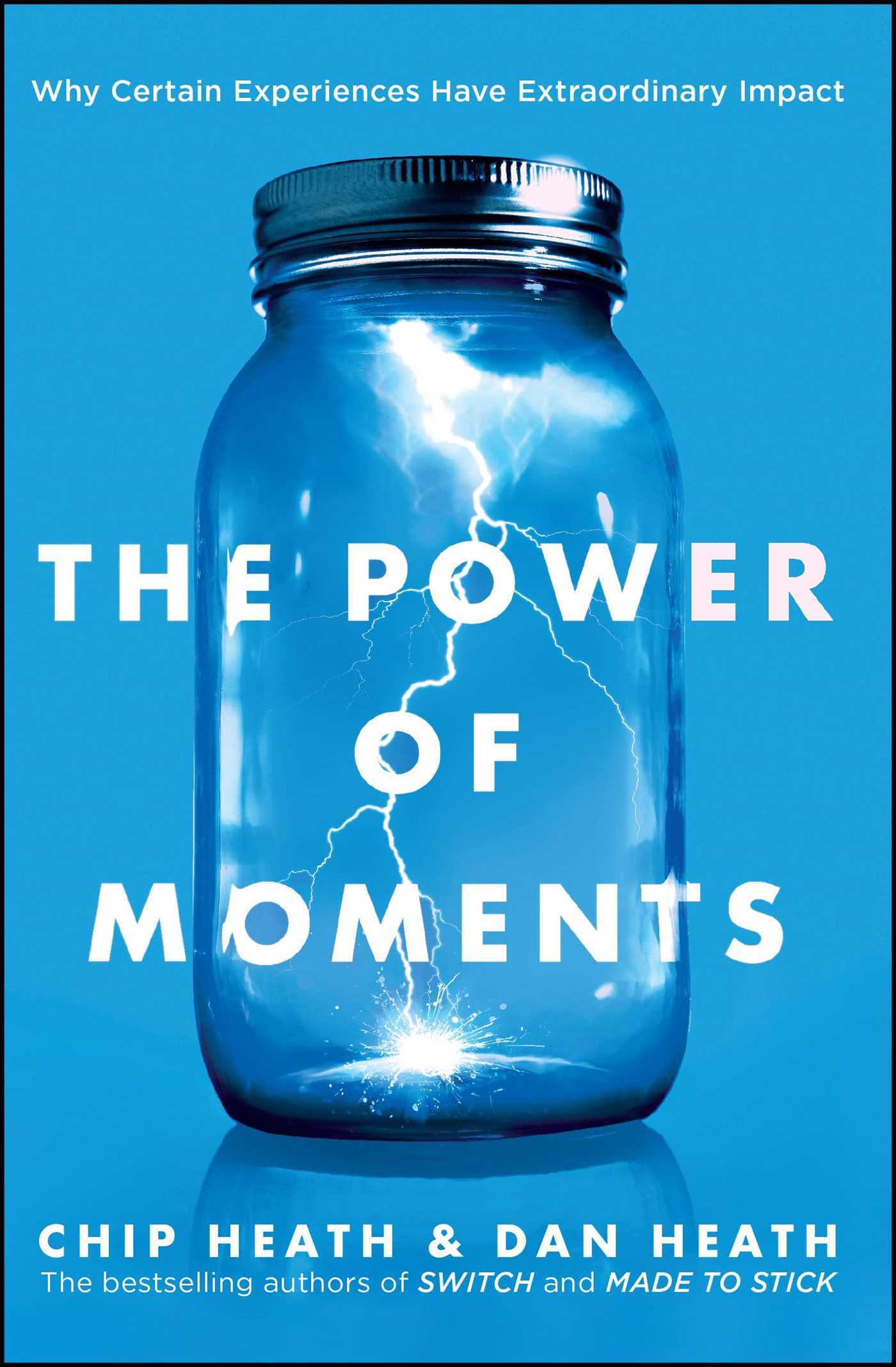






.jpeg?width=150&height=135&name=Hand%20with%20marker%20writing%20the%20question%20Whats%20Next_%20(1).jpeg)

